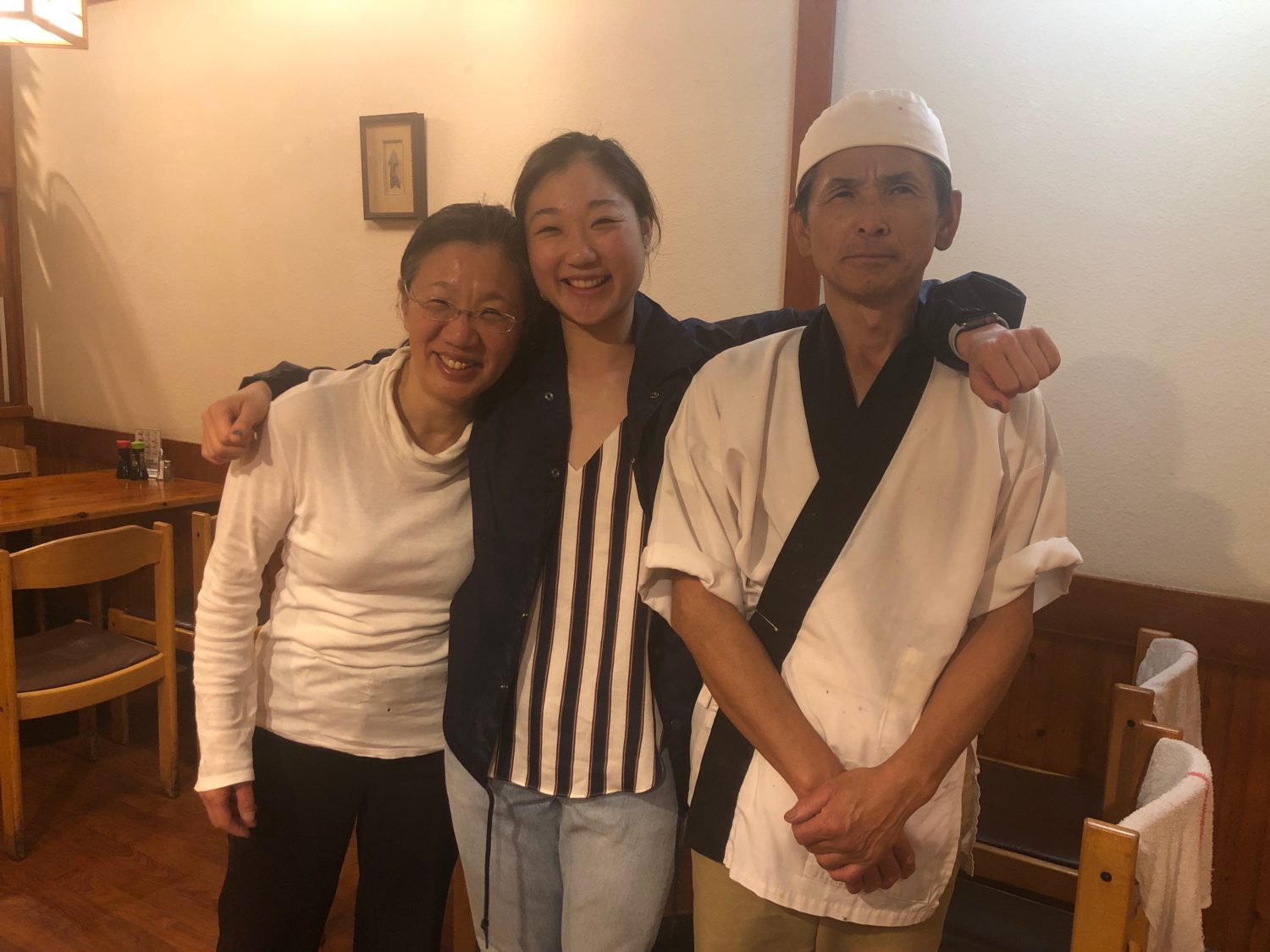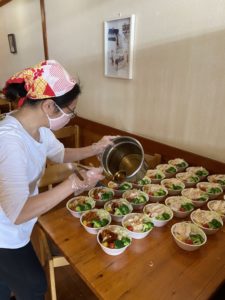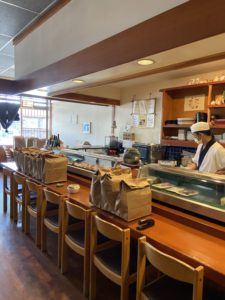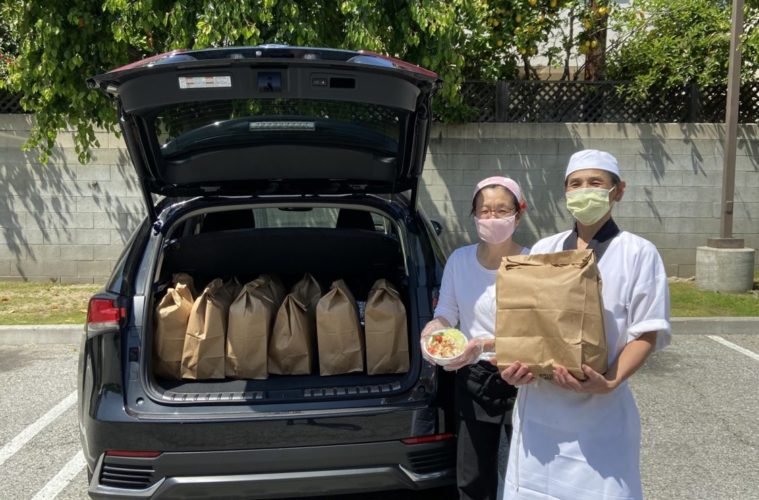Anyone living in the San Gabriel Valley during the 2018 Pyeongchang Olympics can remember the fever and excitement at Sushi Kiyosuzu in Arcadia as locals jammed into Kiyoto and Ikuko Nagasu’s little restaurant to cheer on their daughter Mirai as she became the first American woman to land a triple axel jump in the Olympics, winning a bronze medal for Team USA. News vans lined the street and you couldn’t even get through the front door to get a glimpse of the TV monitor.
The Nagasu family came to California from Japan and opened their little sushi bar a little more than 20 years ago. Kiyoto sacrificed watching his daughter train while Ikuko would take Mirai to the ice rink, as her husband was getting up at 5 a.m. to go to the fish market. Kiyoto didn’t want his product delivered because he wanted to carefully select the catch himself.
Then the pandemic hit and took away the only other child they had.
“Now that I’m out of the nest and out of the home, my parents’ restaurant is their everything,” Mirai tells L.A. Weekly. “It’s really hard for my parents to express their feelings and emotions. They’d always tell me that I could do better; I could do more; I could work harder. Growing up it was hard to find my own voice. They have a hard time communicating in English, so I feel like I’m their voice and it’s my turn to help them now.”

Ikuko from left, Mirai and Kiyoto Nagasu (Courtesy Power of 10)
While Kiyoto was becoming increasingly stressed at the loss of business and bitterly frustrated with filling out Paycheck Protection Program forms, Mirai was approached by Washington D.C. chef and fellow Asian American Erik Bruner-Yang about The Power of 10, a national initiative which launched on March 26 in immediate response to the COVID-19 food crisis.
The initiative is based on re-employing staff, establishing food security and aiding the community. By raising $10,000 per week in donations, the organization is able to provide 10 full-time jobs and 1,000 free meals to any direct, in-need community. This allows restaurants to reopen without having to implement takeout/delivery services that they were not built to handle.

Chicken Teriyaki at Sushi Kiyosuzu (Courtesy Power of 10)
“The idea was how an independent small business owner in the U.S. like me could find different ways to navigate what our new normal was going to be and how to save my businesses,” says Yang in a call from D.C. “At that point in time, half my portfolio had closed, and I had two remaining open restaurants, Maektto and ABC Pony. I was driving through my neighborhood and it was just empty where so many restaurants used to thrive. It was an indescribable feeling of remorse.”
His team started doing financials to see how much they’d need to make each week to stay in business and the same numbers kept reappearing. They had to make about $10,000 a week to secure 10 full-time jobs and had to sell 1,000 meals a week to make that happen. Yang, who grew up in Long Beach after his family came to the U.S. from Taiwan, reached out to Mirai in an effort to help Sushi Kiyosuzu. While she was on board, it was a tough sell to the family.
“First my dad got mad at me,” says the Olympian “‘I don’t have time for your nonsense,’” he said while wrestling with the PPP form. He kept rejecting the idea, but I told him it’s a good alternative trying to help. Where my parents pushed me to become a good skater, I pushed them hard to do this.”

Meals to go at Sushi Kiyosuzu (Courtesy Power of 10)
Mirai finally talked her parents into taking part in the Power of 10 and they became the first L.A. restaurant to join the program. According to David Wang, who helms the L.A. chapter of the program, Sushi Kiyosuzu was funded with a $20,000 check for four weeks, faster than any state or federal government agency has been able to fund independent operators in the U.S.
“As the donations come in we want to be sure we can earmark $20,000 to $40,000 depending on the restaurant’s capabilities to make sure they’re good for four weeks,” Wang tells L.A. Weekly. To date they’ve raised $75,000 since March 26 and have served about 7,000 meals in the country’s capital.
“The three of us all grew up in the same fashion with Asian-American backgrounds and our ability to connect was really great and made it easier to pitch to Mirai’s parents,” says Yang. “I’m Chinese American and understand what it’s like communicating with my parents. It reminds me of where I grew up and for an L.A. launch it couldn’t be a better partnership.”
The Nagasu family started making 500 meals last week and Mirai is hoping to bump it up to 1000 per week. They’ve started with chicken teriyaki and a salted salmon, and plan to add in pork cutlets and some marinated beef xu dong over rice.
“The meals are going to go to the Foothill Unity Center, the Asian Youth Center in San Gabriel and the Methodist Hospital, which are all in the 626 area,” Mirai says. “That’s really important to us because it’s the area we grew up in and we can give back to our community. Even though I trained in Colorado for my last Olympics, the 626 area came up and supported me. It’s where I went to elementary school and high school.”
Making up to 100 meals today to be delivered is an adjustment for Ikuko and Kiyoto, but Mirai plans on supporting them just as they did in her Olympic success.
“They put so much into my future and sacrificed so much for me,” she says. “Where my parents pushed me to become a good skater, I hope to push them hard to do this. At the end of the day it’s for a good cause. For any healthcare worker to get an authentic Japanese meal, that’s enough for them.”
To donate, go to https://www.powerof10initiative.com
Advertising disclosure: We may receive compensation for some of the links in our stories. Thank you for supporting LA Weekly and our advertisers.

